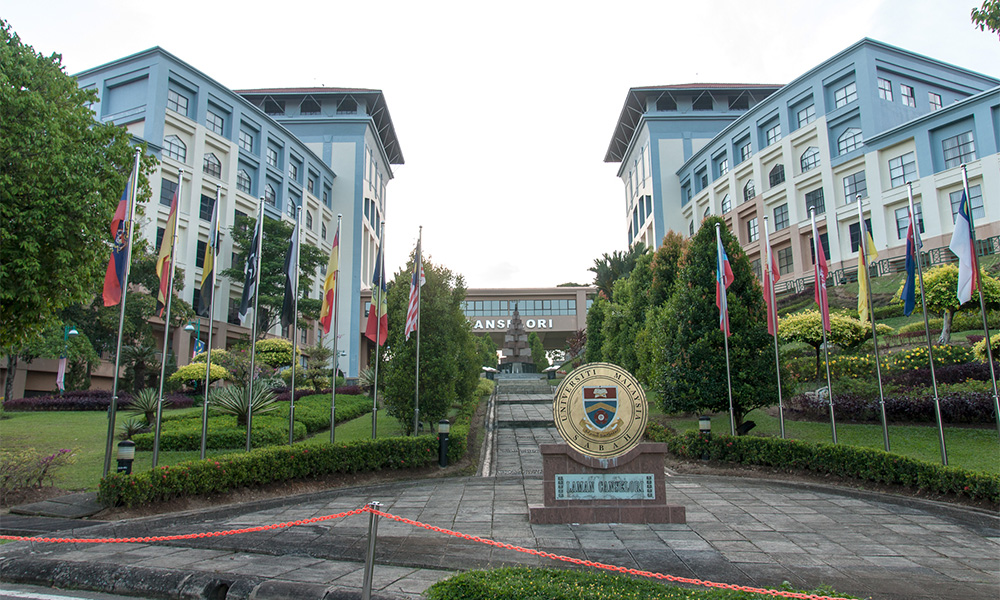
The recent – and evidently ongoing – storm surrounding the selection of the vice-chancellor of Universiti Malaysia Sabah compels Gerak to issue this statement.
For Gerak, it is clear that this appointment embodies issues of autonomy and accountability. These are issues about which Gerak has consistently expressed concern, and which the Education Ministry under the Pakatan Harapan (PH) government has acknowledged.
The current controversy surrounds the appointment of Taufiq Yap Yun Hin as the new vice-chancellor.
Taufiq is a chemist, a fellow of the Royal Society of Chemistry, United Kingdom.
And, unimportant as it should be from an academic perspective, he is Sabah-born and the first ethnic Chinese Malaysian to be appointed vice-chancellor of a Malaysian public university.
There are now false allegations circulating that he was selected by Education Minister Maszlee Malik, without consultation and he was selected because of his religious leanings.
The selection of vice-chancellors has changed – though not fast enough – since the days of the BN.
Inputs from various academic organisations, through written proposals and even a widely-reported town hall meeting in Universiti Malaya on July 23, 2018, have contributed to this change.
Taufiq’s appointment was not made solely by the minister but on the recommendation of the new, autonomous Education Ministry Vice-chancellor Selection Committee that vetted and interviewed all the candidates on the basis of academic merit.
Scholarship and intellectual leadership/vision were core criteria.
Gerak knows of the quality and integrity of individuals in the committee and stands by their decision. We also know that various UMS organisations, including their academic staff association, PSAUMS, are fully supportive of Taufiq’s appointment.
As for Taufiq’s religious inclination or background, what he does in his own time, as long as it is within the law and also within the terms of his tenure, really should be of little concern to us all.
It is what he will do for UMS as an intellectual leader – and there is certainly much to be done – that should matter to us now.
UMS, as most of us are painfully aware, is coming out of a period of much internal conflict and turmoil that have little to do with academic excellence and a lot to do with power relations and political interference under the old regime.
Employability figures for UMS graduates currently are very low – at about 61 percent. Hence, perhaps it would be better for us to support the new independent leadership in UMS, to reform UMS to be among the best.
In this regard, we certainly believe that regional universities should be in constant communication with state governments, and, indeed, the wider community, including civil society organisations and industry.
But, public universities are federal entities that must be run on the basis of the best academic leadership available.
Recommendations for vice-chancellors and chairpersons from local politicians, like chief ministers, are welcome but these candidates must meet the high standards now being set by the independent Vice-chancellor Selection Committee.
These political leaders would do less harm by running their states and constituencies than by interfering in the running of our universities.
Gerak's stand is that political considerations must never be the criterion for the appointment of vice-chancellors.
This, we strongly suspect, is one of the major reasons why university leadership – and Malaysian public universities on the whole – failed to move far enough forward under the BN regime.
The Harapan government evidently wants to change all this. It wishes to reform public universities; to try to make them world-beaters. This is not going to happen overnight.
But it would happen much sooner if political leaders were to embrace the new thinking of Maszlee and the Harapan government as regards merit-based appointments to top university positions.
Indeed, in this age of globalised knowledge and progressive thinking, it is time to discard our old parochial ways and think wider.
In the case of UMS, suffice it to say, the best was appointed – from a list of shortlisted candidates all of whom were Sabahans.
We could, of course, indulge in this tired and tiring post-GE14 game of griping and sniping.
Or we – inside and outside UMS – could rally behind the new vice-chancellor and not undermine him without reason. For the sake of progress and development in UMS and in Sabah. - Mkini


who are Gerak to speak on this issue? what is their position?
ReplyDeletehow do they know the process was followed? if it was followed why is thee CM annoyed?